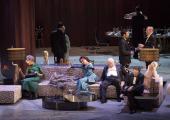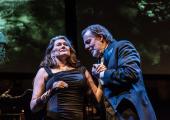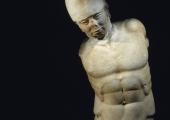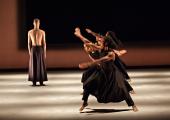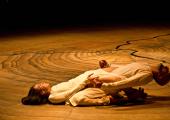Das Rheingold, Hallé, Elder, Bridgewater Hall, Manchester
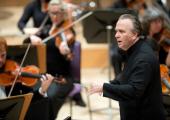
Consummate 'preliminary evening' of the Ring from a master Wagnerian
With two of the biggest parts of the tetralogy already behind them, it might have seemed that Sir Mark Elder and the Hallé would aim simply at as near a perfect recording-cum-concert of Das Rheingold as possible, to get one more in the can and head for the final straight in a year or so’s time. But this Bridgewater Hall performance was more than that: a magisterial account of the score – done in one continuous take of two-and-three-quarter hours – and the recording based on it and its rehearsals, when it appears, will no doubt be a notable and probably great one.


